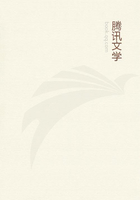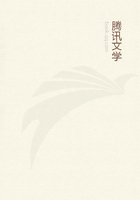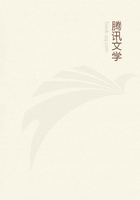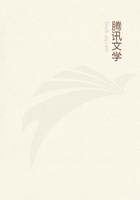Suppose that an acquaintance whom you otherwise liked were to attempt to justify himself to you for having borne false witness, first by alleging the, in his view, sacred duty of consulting his own happiness; then by enumerating the advantages which he had gained thereby, pointing out the prudence he had shown in securing himself against detection, even by yourself, to whom he now reveals the secret, only in order that he may be able to deny it at any time; and suppose he were then to affirm, in all seriousness, that he has fulfilled a true human duty; you would either laugh in his face, or shrink back from him with disgust; and yet, if a man has regulated his principles of action solely with a view to his own advantage, you would have nothing whatever to object against this mode of proceeding.Or suppose some one recommends you a man as steward, as a man to whom you can blindly trust all your affairs; and, in order to inspire you with confidence, extols him as a prudent man who thoroughly understands his own interest, and is so indefatigably active that he lets slip no opportunity of advancing it; lastly, lest you should be afraid of finding a vulgar selfishness in him, praises the good taste with which he lives; not seeking his pleasure in money-making, or in coarse wantonness, but in the enlargement of his knowledge, in instructive intercourse with a select circle, and even in relieving the needy; while as to the means (which, of course, derive all their value from the end), he is not particular, and is ready to use other people's money for the purpose as if it were his own, provided only he knows that he can do so safely, and without discovery; you would either believe that the recommender was mocking you, or that he had lost his senses.So sharply and clearly marked are the boundaries of morality and self-love that even the commonest eye cannot fail to distinguish whether a thing belongs to the one or the other.The few remarks that follow may appear superfluous where the truth is so plain, but at least they may serve to give a little more distinctness to the judgement of common sense.
The principle of happiness may, indeed, furnish maxims, but never such as would be competent to be laws of the will, even if universal happiness were made the object.For since the knowledge of this rests on mere empirical data, since every man's judgement on it depends very much on his particular point of view, which is itself moreover very variable, it can supply only general rules, not universal; that is, it can give rules which on the average will most frequently fit, but not rules which must hold good always and necessarily; hence, no practical laws can be founded on it.Just because in this case an object of choice is the foundation of the rule and must therefore precede it, the rule can refer to nothing but what is [felt], and therefore it refers to experience and is founded on it, and then the variety of judgement must be endless.This principle, therefore, does not prescribe the same practical rules to all rational beings, although the rules are all included under a common title, namely, that of happiness.The moral law, however, is conceived as objectively necessary, only because it holds for everyone that has reason and will.
The maxim of self-love (prudence) only advises; the law of morality commands.Now there is a great difference between that which we are advised to do and that to which we are obliged.
The commonest intelligence can easily and without hesitation see what, on the principle of autonomy of the will, requires to be done;but on supposition of heteronomy of the will, it is bard and requires knowledge of the world to see what is to be done.That is to say, what duty is, is plain of itself to everyone; but what is to bring true durable advantage, such as will extend to the whole of one's existence, is always veiled in impenetrable obscurity; and much prudence is required to adapt the practical rule founded on it to the ends of life, even tolerably, by making proper exceptions.But the moral law commands the most punctual obedience from everyone; it must, therefore, not be so difficult to judge what it requires to be done, that the commonest unpractised understanding, even without worldly prudence, should fail to apply it rightly.
It is always in everyone's power to satisfy the categorical command of morality; whereas it is seldom possible, and by no means so to everyone, to satisfy the empirically conditioned precept of happiness, even with regard to a single purpose.The reason is that in the former case there is question only of the maxim, which must be genuine and pure; but in the latter case there is question also of one's capacity and physical power to realize a desired object.Acommand that everyone should try to make himself happy would be foolish, for one never commands anyone to do what he of himself infallibly wishes to do.We must only command the means, or rather supply them, since he cannot do everything that he wishes.But to command morality under the name of duty is quite rational; for, in the first place, not everyone is willing to obey its precepts if they oppose his inclinations; and as to the means of obeying this law, these need not in this case be taught, for in this respect whatever he wishes to do be can do.















